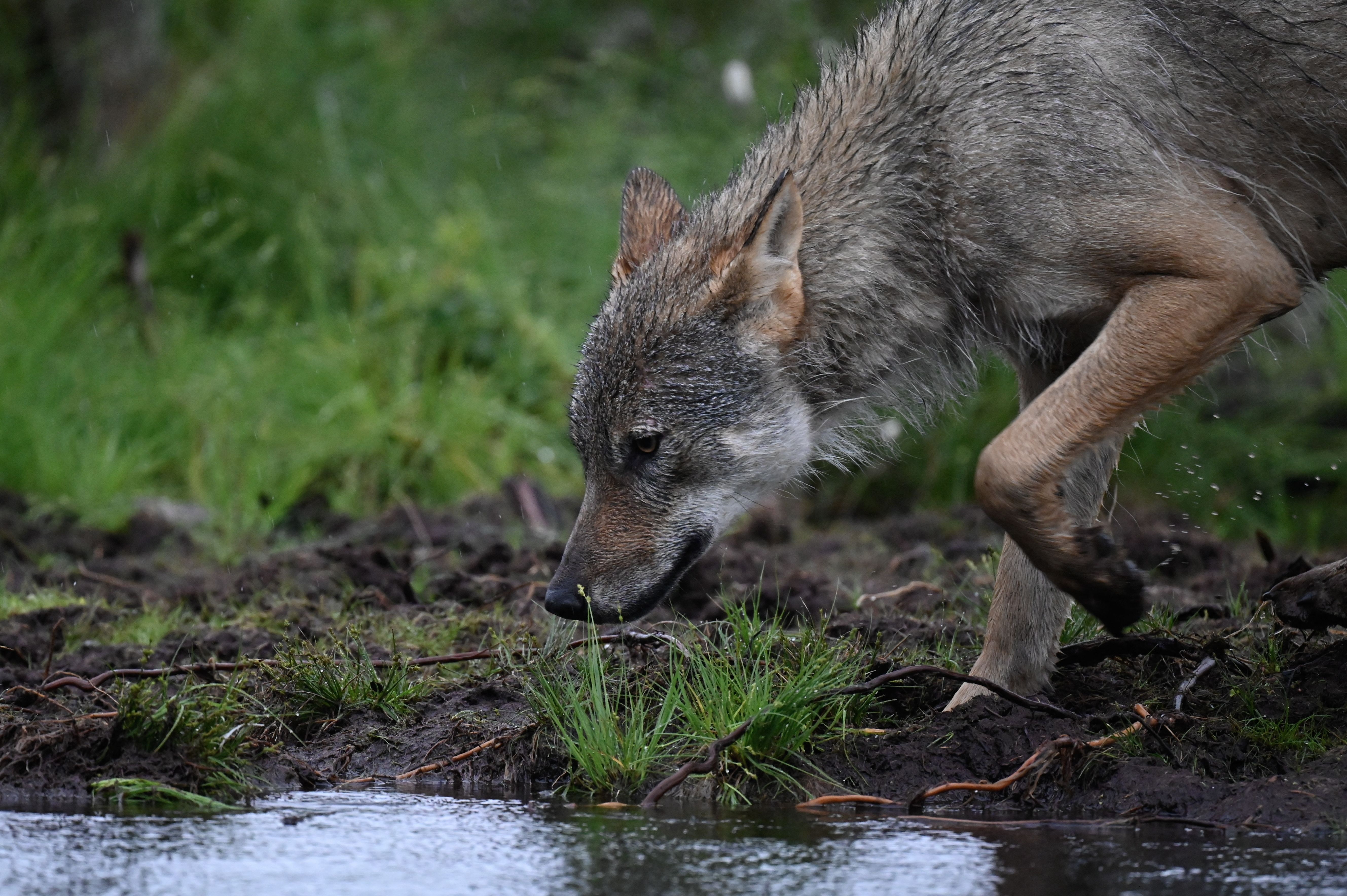European Commission proposes lowering wolf protection status in Europe

The European Commission has published a proposal to downgrade the level of protection for wolves in the EU, claiming that their increasing numbers pose a threat, particularly to livestock.
Under the Bern Convention and the EU's 1992 Habitats directive, wolves enjoy "strict protection" status in most of Europe, with the possibility of exceptions. The Commission is now proposing to change the international status of wolves from strictly protected to protected, based on new data on increasing populations and impacts.
"The concentration of wolf packs in some European regions has become a real danger"
“The comeback of wolves is good news for biodiversity in Europe. But the concentration of wolf packs in some European regions has become a real danger especially for livestock," said European Commission president Ursula von der Leyen in a statement on Wednesday.
Her views were echoed by Agriculture commissioner Janusz Wojciechowski. “From speaking with farmers and rural communities, I understand how the return of wolves has presented significant challenges in a number of areas, especially for pastoralism, in an already difficult socio-economic context."
Conflicts with farmers and hunters
The Commission said that the return of wolves to areas of the EU where they had been absent for a long time was increasingly leading to conflicts with local farming and hunting communities. Over the past 20 years, the wolf population has increased significantly across the EU.
“68 per cent of those surveyed advocating to maintain the strict protection status of large carnivores"
The Commission's proposal follows a data collection analysis last September and is based on in-depth analysis. According to the report, there are now more than 20,000 wolves in 23 EU countries and their packs are growing and occupying larger territories. Wallonia currently has three packs on its territory, while Flanders has one.
The report also referred to a recent opinion poll conducted by the animal welfare NGO Eurogroup for Animals, in which 68 per cent of those surveyed advocated maintaining the strict protection status of large carnivores.
The estimate of 20,000 wolves in the EU is in stark contrast to the 86 million sheep reared, the NGO said. Between 2012 and 2016, the annual number of sheep compensated because of wolf depredation was 0.05 per cent of the over-wintering sheep stock, while the risk of attacks on humans is very low as wolves usually run away when they encounter them.
'Outrageous' proposal
The World Wildlife Fund (WWF) described the Commission's proposal as "outrageous". WWF representative Sabien Leemans accused von der Leyen of "deliberately sacrificing decades of conservation work for her political gain, echoing her political allies’ attempts to instrumentalise the wolf as a scapegoat for socio-economic problems in rural communities".
It is now up to the member states to decide on the proposal. Once adopted, the proposal will be submitted by the EU to the Standing Committee of the Bern Convention.
In the meantime, member states are urged by the Commission to take action under the current legal framework and to use EU funding to support investment in preventive measures to reduce the threat to livestock.
© PHOTO OLIVIER MORIN / AFP